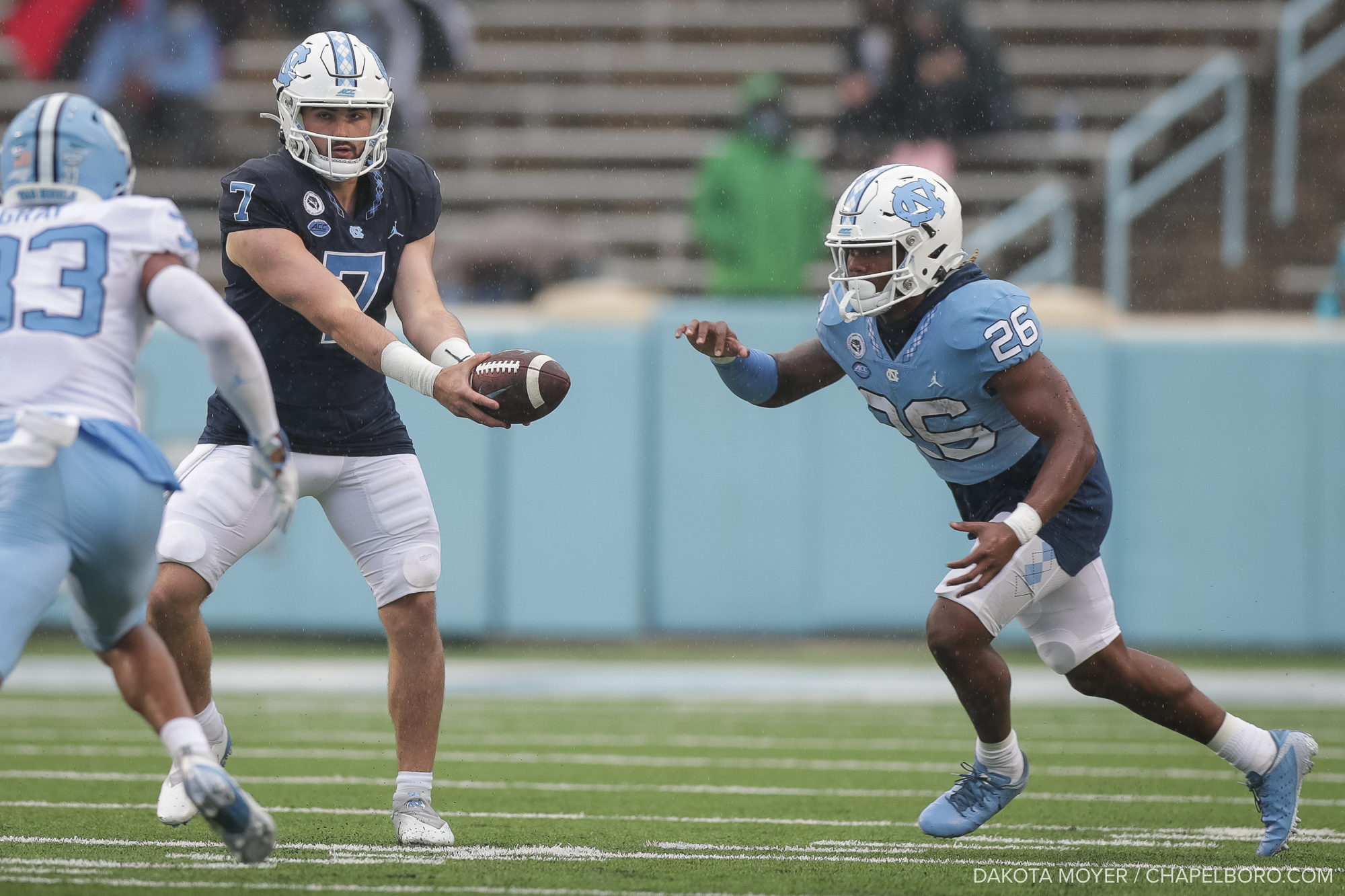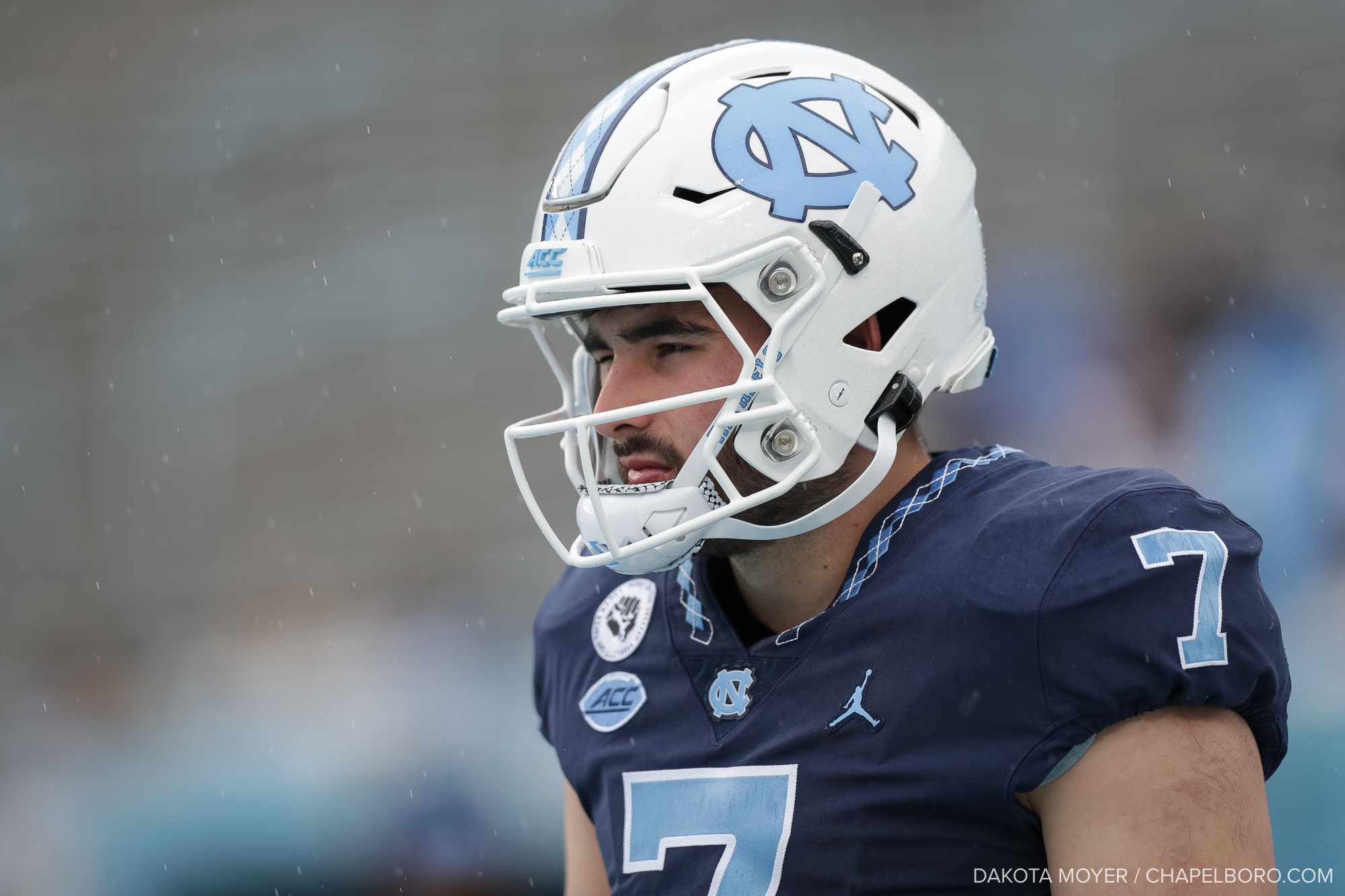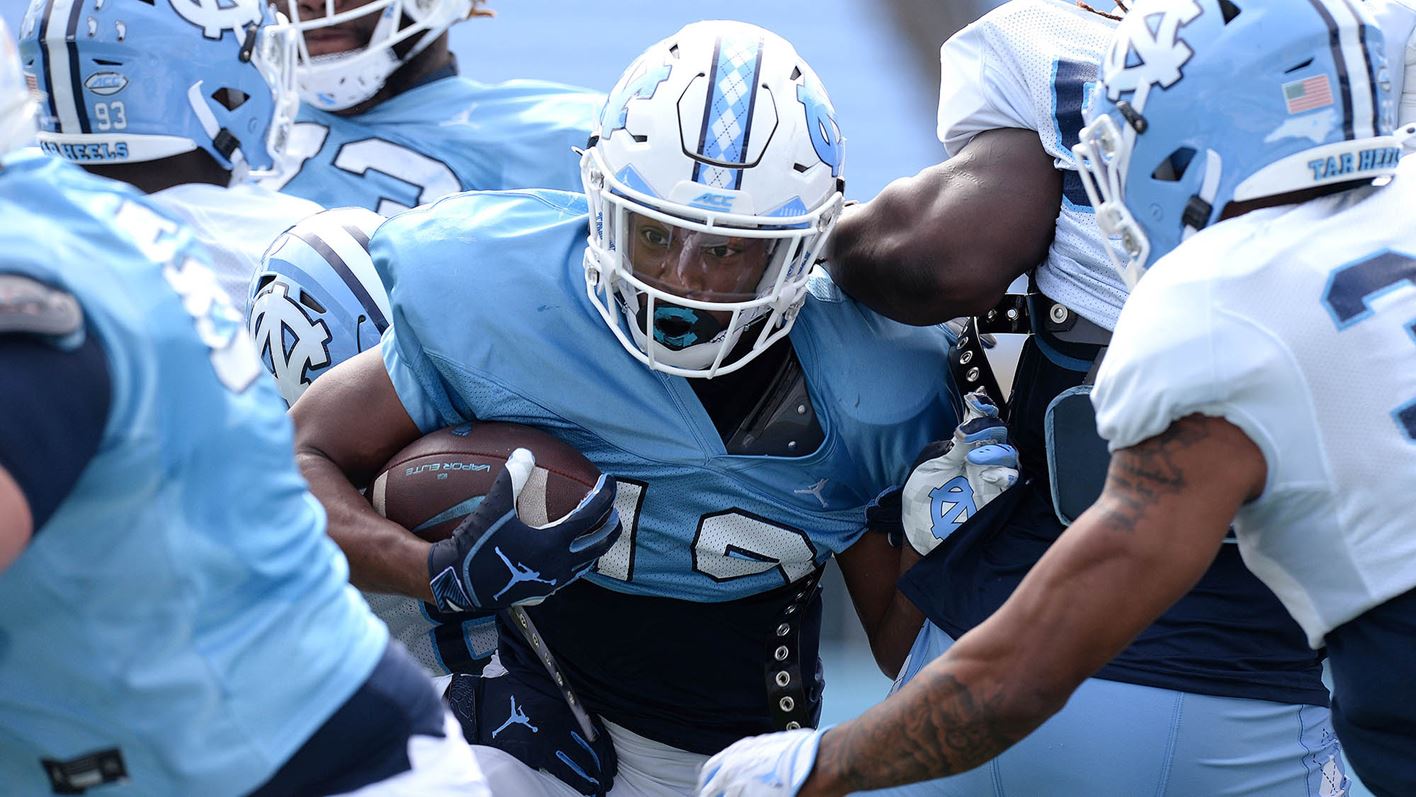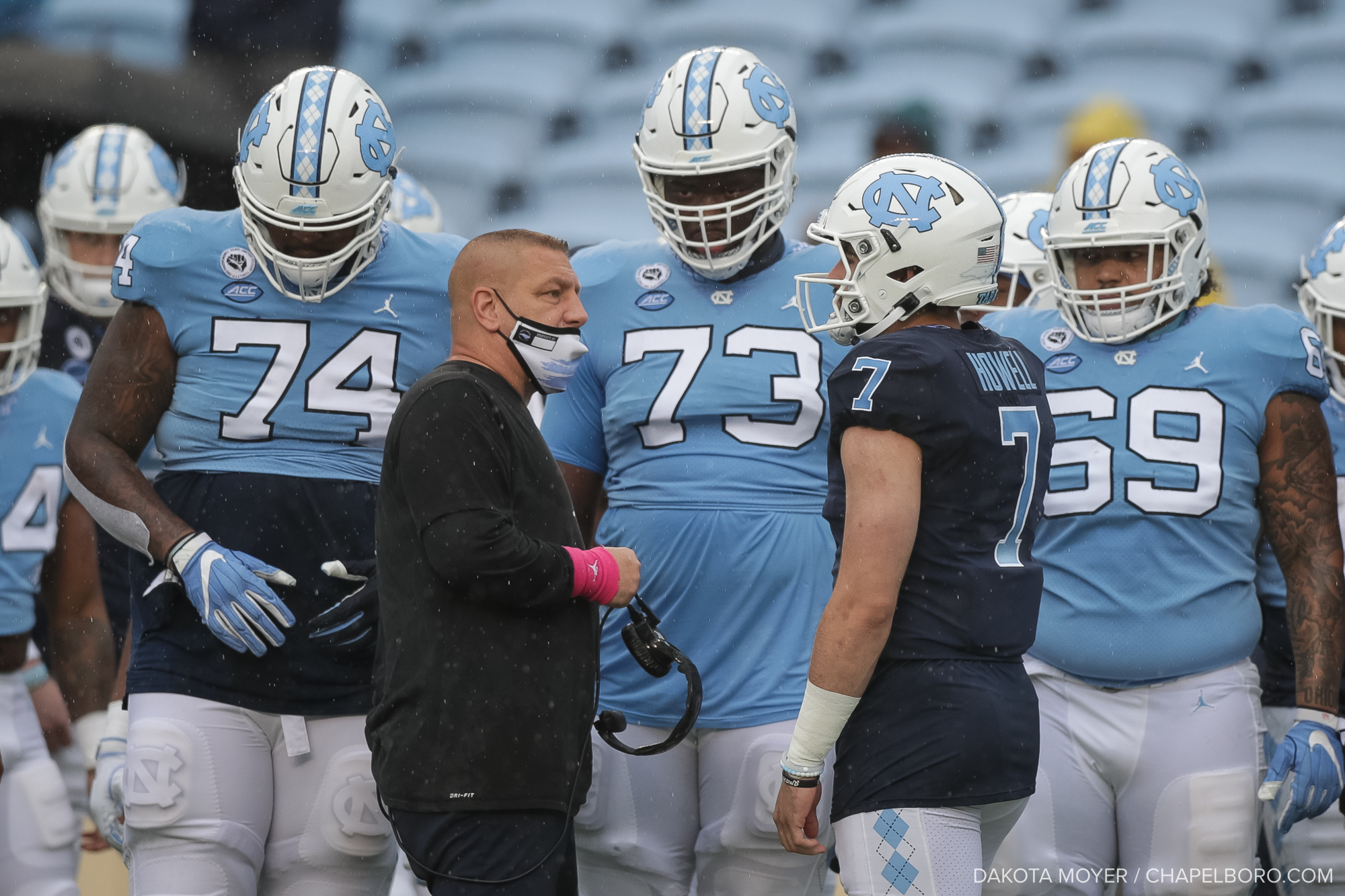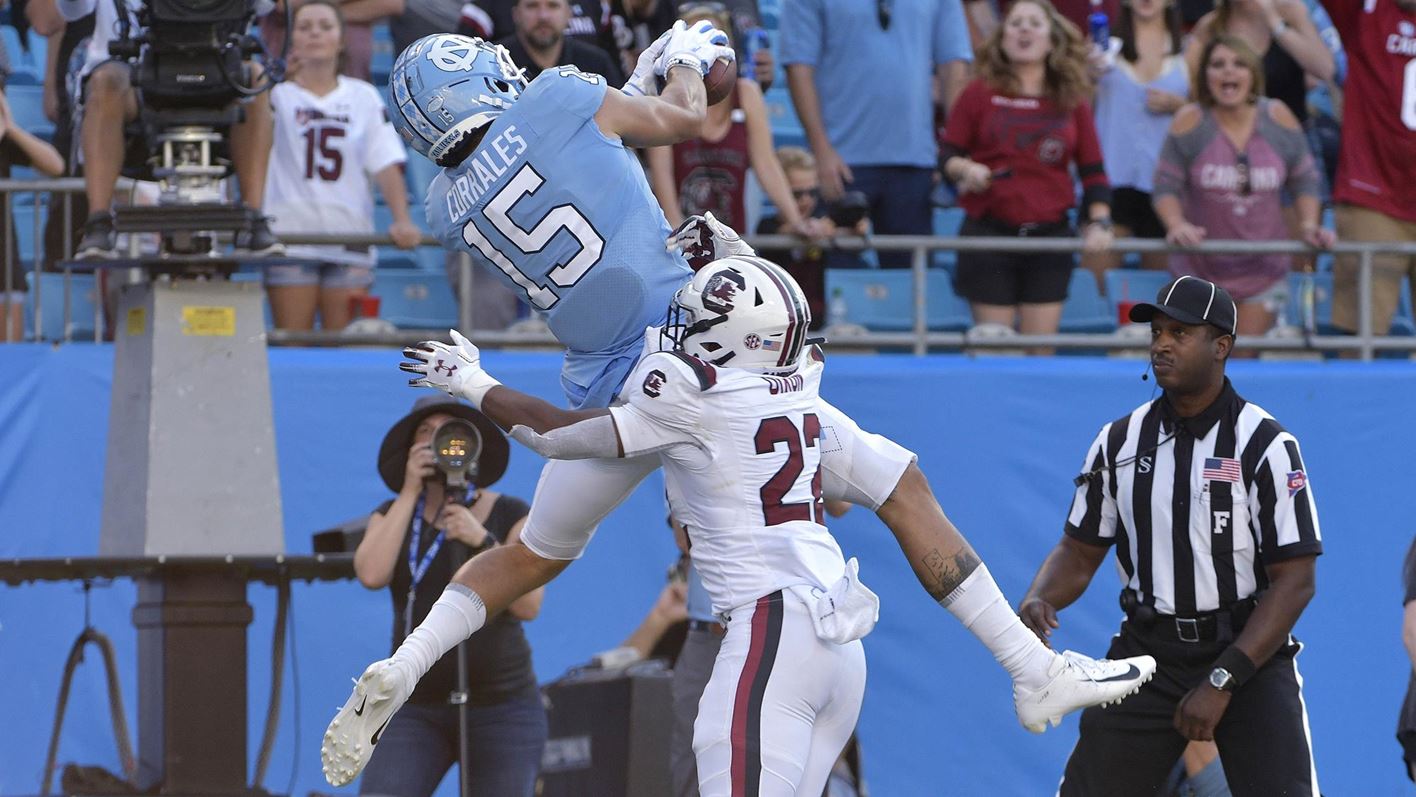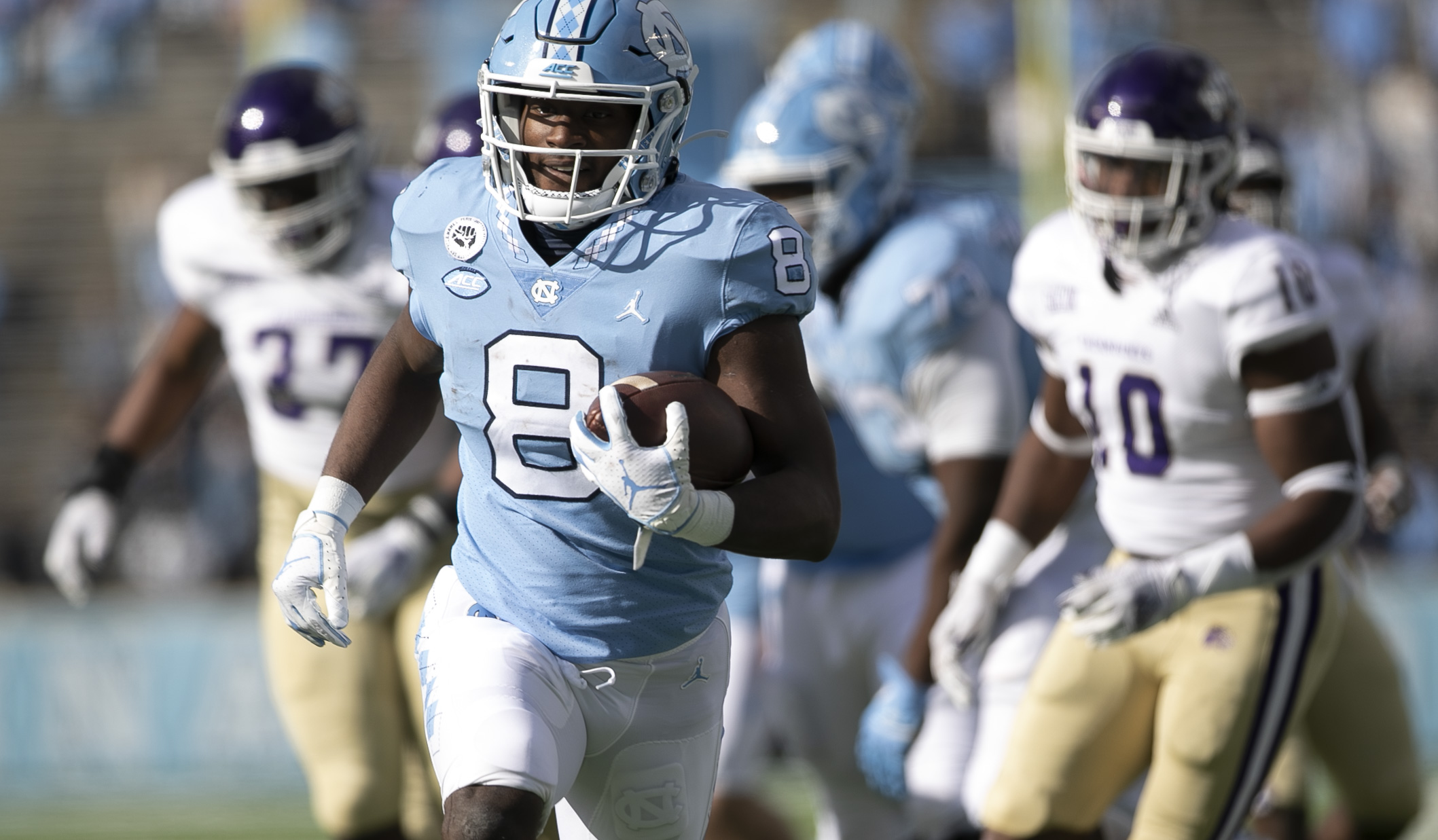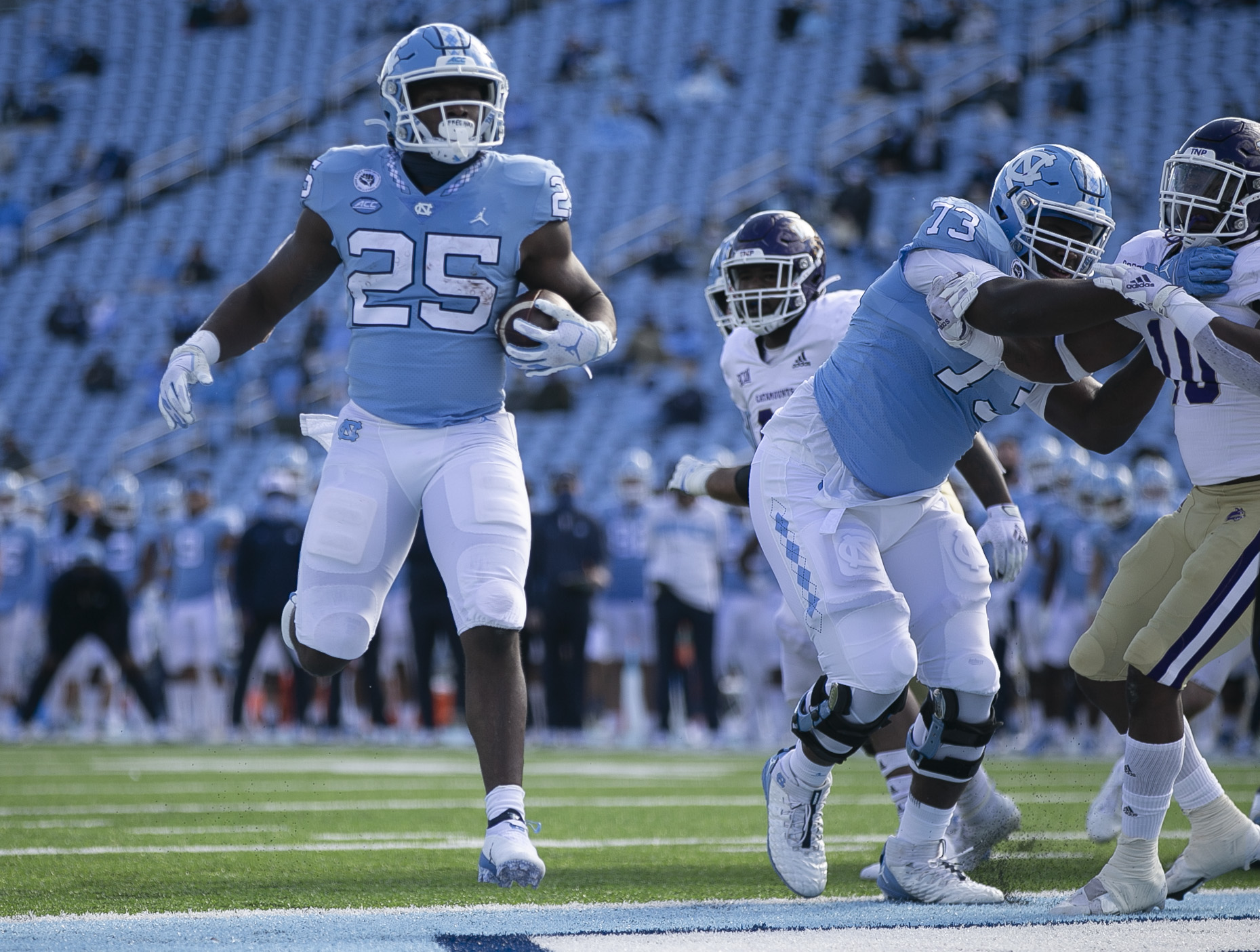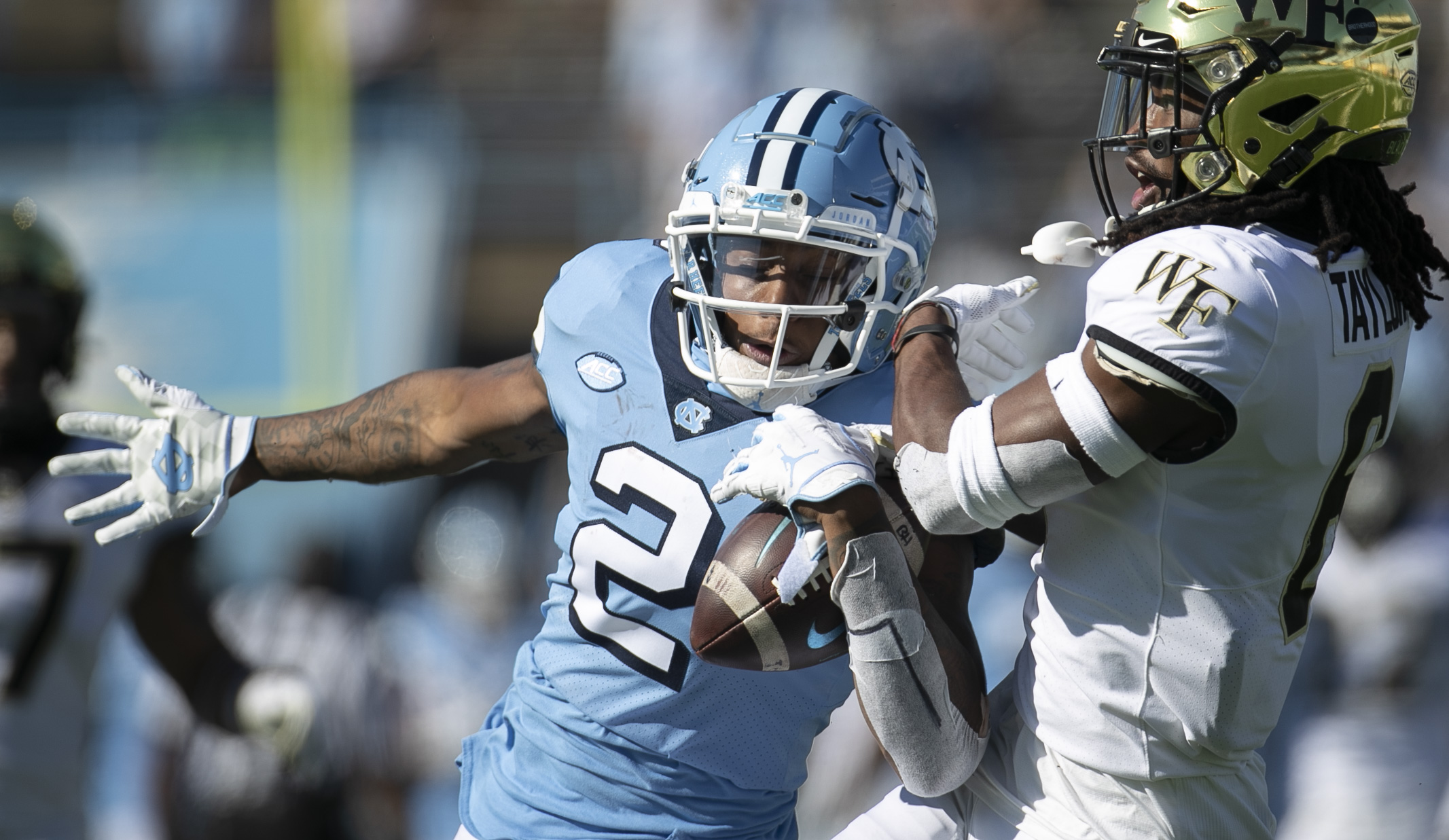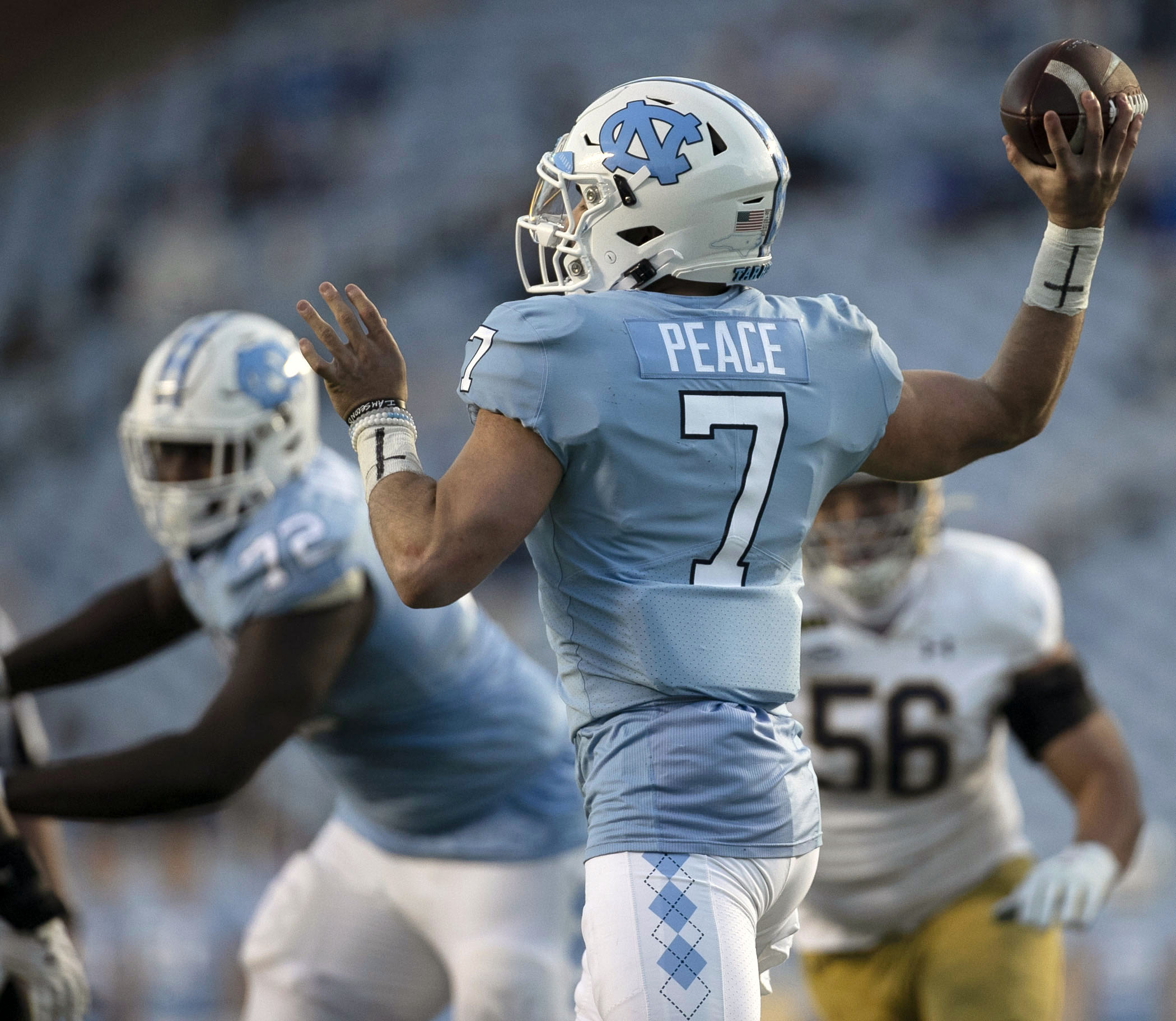In a sport like football where a large number of moving parts must work together seamlessly to achieve a common goal, leadership becomes paramount to success.
With big vocal presences like former quarterback Marquise Williams yet to establish themselves in the locker room this season, the UNC football team—despite being extremely talented—is still working on finding its voice at a couple of key positions.
“Leadership doesn’t just come from seniors,” Fedora said. “It can come from anybody. Anybody that has influence on your team—and that can be a freshman, sophomore, junior or senior. It doesn’t matter.

Sophomore middle linebacker Andre Smith (10) is similar to Trubisky in that they both are naturally a bit more quiet than some of their teammates. Their positions, however, require their voices to deliver play calls and audibles. (Smith Cameron Photography)
“If you’ve got influence, you’ve got the possibility to lead either positively or negatively.”
Looking at the Tar Heel roster in 2016, there are some seniors—like Des Lawrence, Ryan Switzer and Dominquie Green—who have done plenty of work to establish themselves as leaders.
However, none of those guys plays a position with as much influence as junior quarterback Mitch Trubisky.
Since inheriting the role from Williams in the spring, Trubisky has been impressive—even throwing for a career-high 432 yards last Saturday against James Madison.
UNC head coach Larry Fedora remains critical of his new signal-caller, though, pointing out that Trubisky has made a few mistakes with his decision making at the line of scrimmage this season—which is crucial in a Tar Heel offense that relies on the quarterback to read the defense and get everyone into the right play.
“He’s not the most vocal leader that we have,” Fedora said. “Whether he likes doing it or he’s comfortable doing it, the position dictates it—so he has to do it.
“The quarterback has to have a presence all the time,” he continued. “So that’s something he’s constantly working on.”
In some ways, Trubisky’s quiet personality has made speaking up and barking at teammates a bit of a struggle.
On the other side of the ball, similar issues have arisen thanks to the reserved nature of new middle linebacker Andre Smith—a skilled sophomore with 26 tackles through UNC’s first three games.
Although Smith—who, like Trubisky, is in charge of getting his unit set in the right play–has made strides in his vocal leadership, the Tar Heels have hit stretches defensively where frustration has gotten the better of them.
Fedora said after the team’s shaky performance against James Madison that veterans like Lawrence and Green were having to do anything they could to keep the defense from underestimating the Dukes.
Junior safety Donnie Miles said he noticed the same thing, unfortunately, and hopes he can play a larger role in similar situations moving forward.
“We didn’t look like we were out there having fun,” Miles said. “There wasn’t really as much energy. That’s something that—me being an older guy—I gotta try to pick guys up and bring the energy. Not just wait for something to happen.

Defensive coordinator Gene Chizik shares a word with junior safety Donnie Miles. Miles took it upon himself this week to say he needs to do more from a leadership standpoint to help keep the defense focused and on track. (Smith Cameron Photography)
The learning process to become a leader is one that also extends beyond the field and into the film room. Players must be able to hold each other accountable, which obviously gets a little bit easier to do with the proof right in front of them.
Coaches are also crucial to development during meetings because they can provide brutal honesty that goes a step further than what many players would usually say to their peers.
When somebody like Trubisky or Smith misses a play call or fails to deliver the right message to their teammates, all Fedora and his staff need to do is look at the tape.
“We tell them it’s the only place they’re getting the truth in their life,” Fedora said. “It really is. They’re not getting it at home, they’re not getting it from their girlfriend, they’re not getting it from anybody else.
“They get the truth when they go into those meeting rooms—because the eye in the sky don’t lie.”
This early in the season, it’s not uncommon for teams to still be making mental mistakes as they work on finding their voice.
As time goes on, though, the Tar Heels will eventually need those issues to be figured out in order to knock off top competition—regardless of how much talent and playmaking ability they possess.

